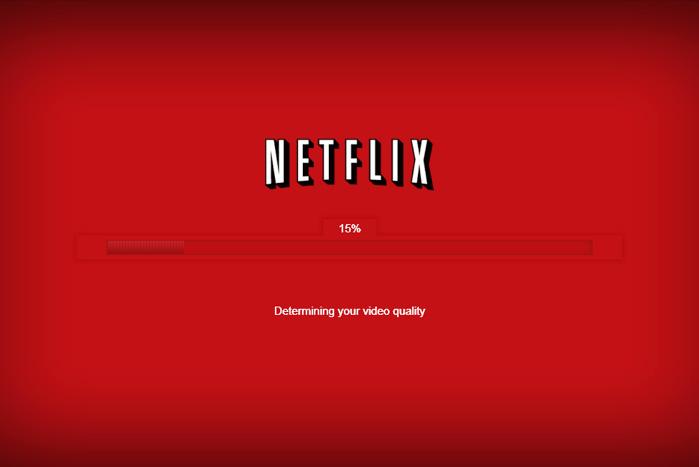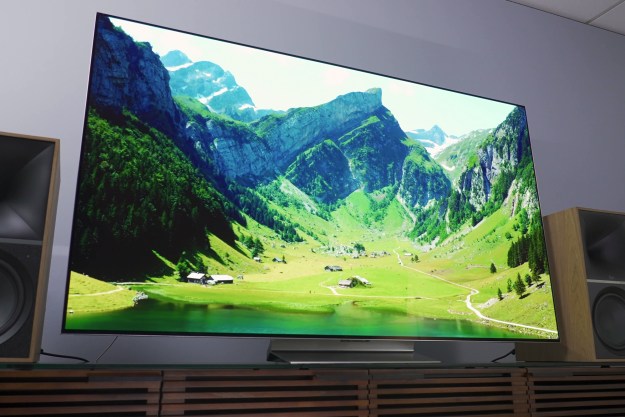
The numbers are in, and Comcast is movin’ on up in the Netflix speed rankings, jumping up six slots over the previous month to sit as the number five major service provider in Netflix’s Monthly ISP Speed Index for March.
The faster speeds come on the heels of a reluctant and controversial deal in February, in which Netflix agreed to pay Comcast an undisclosed fee for more direct interconnection to its pipelines. Just five days after Netflix announced its paid partnership with Comcast, our Netflix streaming quality jumped exponentially. But while the improvement was clear to us, it was hard to quantify. Plus, the improvement could well have been regional. Now there’s data showing precisely how much Comcast’s agreement paid off.
Many of the top ISPs on the March Speed Index list, including Cablevision and Suddenlink, are users of Netflix’s Open Connect system, which is an in-house solution that allows for faster streaming speeds through direct connection to Netflix servers. But Comcast and several other big ISPs elected to hold out to negotiate for payment instead of using Netflix’s free service.
Netflix CEO Reed Hastings has since denounced such pay-to-play deals in a plea for Net neutrality, which guarantees fair play for all online services. Still, after the Comcast deal, rumors of similar negotiations in the works were reported between Netflix and other Open Connect holdouts like AT&T, and Verizon. Verizon has been accused of playing particularly dirty lately, with rumors that the company was purposefully throttling Netflix streams immediately after the company won a courtroom victory that handicapped the FCC’s ability to enforce Net neutrality. Verizon vehemently denies such claims.
There was no sign of unrest between the Open Source holdouts and Netflix in the company’s latest blog about improved streaming speeds, however. “This month’s rankings are a great illustration of how performance can improve when ISPs work to connect directly to Netflix,” reads the blog. “In the US, the average speed on the Comcast network for Netflix streams is up 65 percent from 1.15Mbps in January to 2.5Mbps in March.”
For reference, the five major ISPs with the fastest Netflix streaming in March were: Cablevision (2.98 Mbps), Cox (2.84Mbps), Suddenlink (2.67Mbps), Charter (2.61Mbps) and Comcast at 2.5Mbps. As MultiChannel News reports, not on this list, but aggregated in Netflix’s expanded report, are speedsters like Google Fiber and Midcontinent Communications, which role in at 3.5Mbps, and 3.02Mbps respectively. Of course, access to those smaller ISPs is still highly limited.
At the bottom of the barrel were AT&T and Verizon, which showed dismal speeds of 1.17Mbps, and 1Mbps respectively. As Netflix has yet to broker deals with either company in the vein of its recent Comcast agreement, one has to wonder if there is more to the story than basic network connection issues there. Either way, it appears for now that the companies may get their own form of payola to help expedite streaming to a massive number of Netflix subscribers.
Meanwhile, Comcast seems to be getting its way, jumping to the top five of the big ISPs after wheeling and dealing for a payout. As the company continues to push for its multi-billion dollar merger with Time Warner Cable, it now has one more feather in its cap to show consumers that, as Executive VP David Cohen put it to congress last week, “the proposed transaction to combine Time Warner Cable with Comcast will benefit millions of Americans.”
While there are a mountain of reasons for which many would argue that statement is inaccurate, including concerns over the stifling of competition, innovation, and fair play for Internet services at large, when it comes to Netflix streaming for Time Warner customers, Cohen may just have a point. Then again, the method by which Comcast achieved its higher streaming speeds – a hold out for cash by a company that was simply too big for Netflix to deny – seems to be as good an argument as any against Comcast getting any bigger than it already is.
Editors' Recommendations
- How to watch Netflix in 4K if you’re not seeing the option
- Netflix screwed up, but that doesn’t mean it’s wrong
- Comcast cable subscribers’ bills will go up in 2020
- HBO Max vs. Netflix: A very early look at how Warner’s new streamer stacks up


